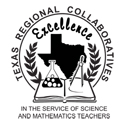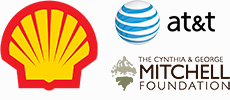The TRC offers a series of Professional Development Academies (PDAs) for Instructional Team Members (ITMs) to support Collaboratives in implementing research-based professional development with their teachers. TRC Professional Development Academies are grounded in research on effective strategies for improving students’ learning. The TRC PDAs continue to have a secondary level focus to help teachers and students meet the challenges of the new End-of-Course state assessments administered at the high school level. In addition to a secondary focus, the TRC also supports elementary grade teachers for professional development which is vertically aligned with these content priorities.
Professional Development Academies (PDAs) serve professors of science and mathematics, instructional specialists, science and mathematics education professors, and master teachers.
- PDAs enhance the participants’ knowledge and skills necessary to develop, sustain and facilitate high quality professional development programs.
- PDAs activities are aligned with state standards and priorities.
- PDAs afford providers of professional development across the state opportunities to model life-long learning.
Past PDAs
Over the years, the TRC has provided dozens of PDA opportunities covering a wide range of relevant STEM topics. NOTE: A list of more recent PDAs is available in the PDA category list.
2013 (Science, Mathematics and BTIM)
- Science Formative Assessment Strategies for Linking Assessment and Learning
- Making Sense of Science- Force and Motion
- Focus on Algebra: Linear Functions
- Physics for Us
- Supporting Formative Assessment in the Math Classroom
- CTE + Math = Student Success
- Geometry in Construction (Math)
- Developing Mathematical Ideas: Making Meaning for Operations K-8
- Flipped Lessons for Math and Science Grades 6-12
2012 (Science, Mathematics and BTIM)
- Secondary Numeracy: 6-12 (Part 2)
- Understanding by Design (Science)
- Physics Instrumentation
- Young Mathematicians at Work: Multidigit Addition Grade 1-4
- Young Mathematicians at Work” Multiplication Grades 3-7
- Young Mathematicians at Work: Operations with Fractions Grades 5-8
- Chemistry EOC Success Part 2
- Geometry in Construction
- Understanding by Design (Math)
- Developing Mathematical Ideas: Patterns, Function and Change K-8
- Addressing the Physics TEKS 6 A-D
- Digging Deeper into the Mole Concept (Science)
- ESTAR Academy II: Grades 3-4 ToT (Math)
- STEM to ST2REAM (BTIM)
2011 (Science, Mathematics and BTIM)
- Research Lessons to Improve Teaching Math and Science
- Energy and Matter in Biological Systems
- Fostering Algebraic Thinking (Grades 6-10)
- Fostering Geometric Thinking (Grades 6-10)
- Hands-On Astronomy
- TXESS Revolution PDA 8
- Mentoring Texas (BTIM)
- Navigating the ELPS: Math and Science
- Using Observations to Support Novice Teachers and Transform Classrooms (BTIM)
- Young Mathematicians at Work K-3
- Young Mathematicians at Work 3-7
- Young Mathematicians at Work 5-8
- TXESS Summer Institute (Science)
- Program Evaluation (Science and Math)
- Brain-Considerate Learning: The Bridge Between Teaching Effort and Student Learning (BTIM)
- PBL-Environmental Science
- ESTAR: Elementary Students in Texas-Algebra Ready
- Secondary Numeracy: 6-12 (Part 1)
- ESTAR: K-2 (Math)
- ESTAR: 3-4 (Math)
2010 (Science, Mathematics, and BTIM)
- Developing Mathematical Ideas Part 1 and 2
- Algebraic and Geometric Modeling Revisited (HS)
- HEADS UP: Middle and High School Life Science
- Making Science Accessible for English Learners
- Imagine Mars: Using Creative Thinking Skills to Promote STEM Learning
- ESTAR: Elementary-School Students in Texas: Algebra Ready
- ESTAR: Elementary-School Students in Texas: Algebra Ready (Administrators’ Day)
- MSTAR: A Geometric Approach to Algebra Readiness
- Games in Science Education: Addressing Science and Technology Standards Through On-Line Games
- UT Summer Science Institute-Energy and Motion
- UT Summer Institute Energy and Matter in Biological Systems
- Mentoring: The Lesson Cycle, Teacher Observations, and Differentiated Instruction (BTIM)
- Informal Science and Mathematics in Museums
- Institute for Inquiry
- TXESS Revolution PDA 6 and 7
- Building Math for Middle School
2009 (Science and Mathematics)
- Assessing Children’s Thinking about Fractions
- Early Childhood Math/Science Workshop
- TXESS Revolution PDA 4 and 5
- High School Chemistry
- Mentoring Science Teachers
- Assessing Children’s Algebraic Thinking: K-2
- Assessing Children’s Thinking about Fraction: 3-5
- Elementary Engineering
- Instrument Dissemination Workshop: Learning Mathematics for Teaching Project
- Learning to Lead Mathematics Professional Development
- Next Generation GLOBE
- TXESS Revolution Summer Institute
- Physics- Electricity
- Jazz Up Math with Journals
- Early Childhood Math/Science
- Elementary Chemistry
- TRC-Beginning Teacher Induction and Mentoring
- Fostering Geometric Thinking 5-11
- SECO (State Energy Conservation Office)
2008 (Science and Mathematics)
- Podcast Specialist Training
- Bridging to TAKS Module 1- Light and Optical Systems in Spanish
- TXESS Revolution PDA 1, 2, and 3
- Assessing Mathematical Knowledge for Teaching
- Texas Connection: McDonald Observatory and the TRC
- Fostering Algebraic Thinking 6-10
- Children’s Thinking in Measurement
- TXESS Revolution Summer Institute
- Chemistry for All
- MTC Geometry
- Middle School Chemistry: Chemical Interactions
- Physics Energy and Momentum
- Chemistry for All
- NSTA Resources
- Assessing Mathematical Knowledge for Teaching Algebra
- NSTA Online Professional Development
- GeoGebra
- Assessing Children’s Algebraic Thinking: K-2
- TMSDS Training
2007 (Science)
- Texas Science Diagnostic System
- Viewing Earth from Space
- Early Childhood Science
- Physics for All Session One and Two
- K-8 Geoscience Session One and Two
- Journaling
- Elementary GLOBE
- GLOBE Land Cover
2006 (Science)
- Teacher Quality Integrated Physics and Chemistry Session One and Two
- Taking a Closer Look (field experience to west Texas)
- Telescope Workshop (making 6” and 8” telescopes”
- GLOBE (Global Learning to Benefit Earth)
- Earth Science Revolution Session One and Two
2005 (Science)
- Project WILD
- Service Learning
- GEMS
- Bridging to TAKS Module 1- Light and Optical Systems (Sept. and Oct.)





